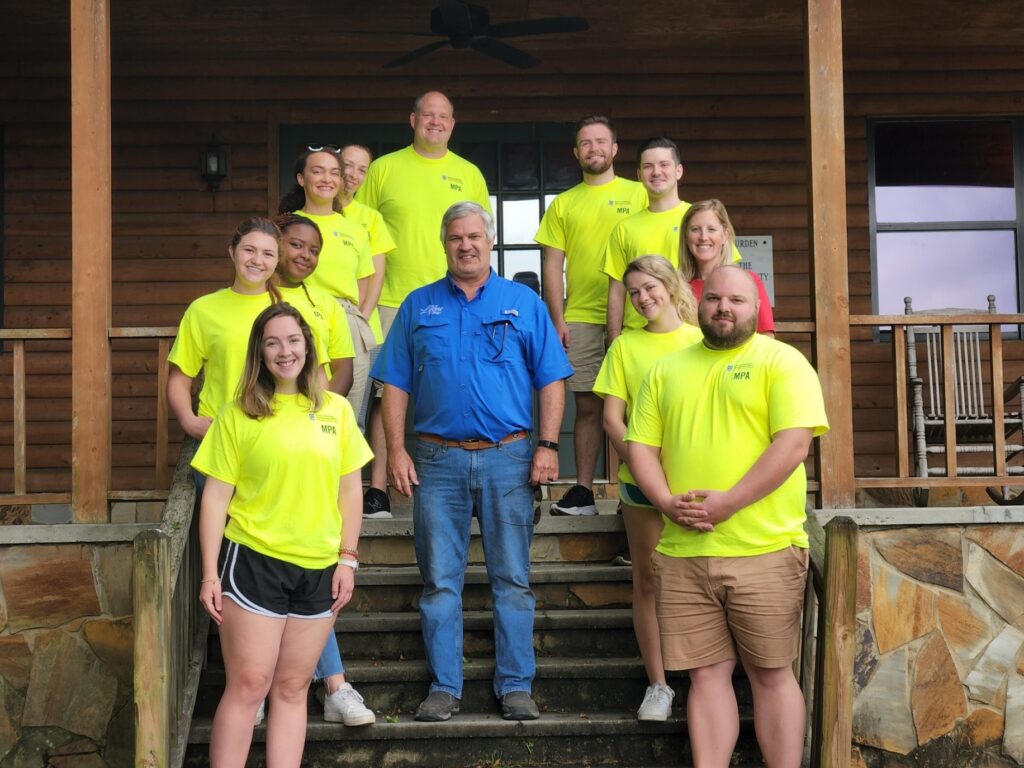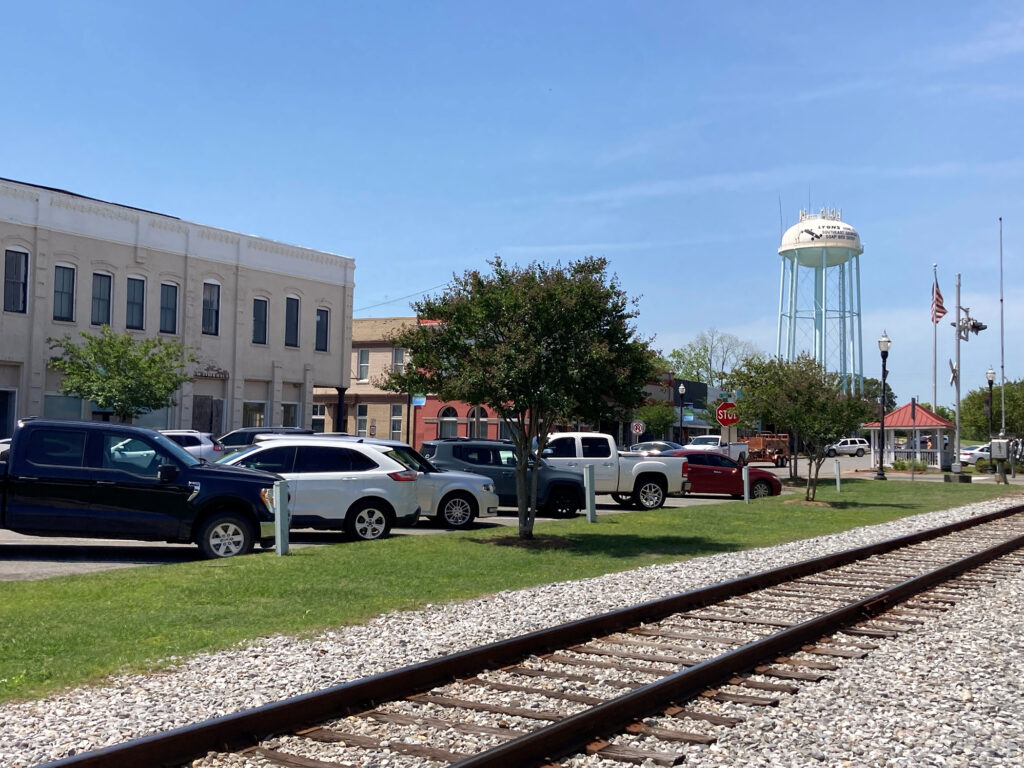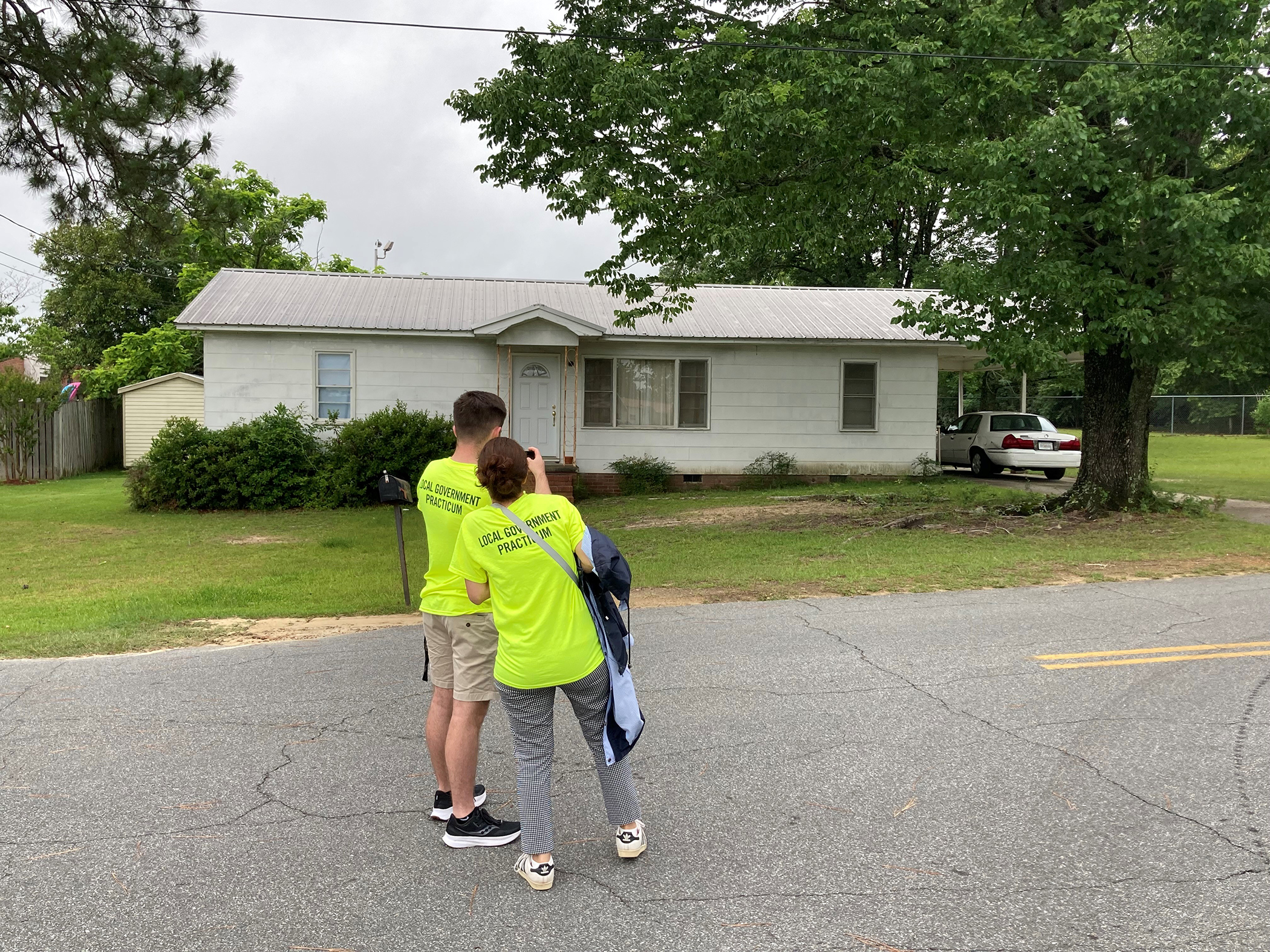A handful of UGA students spent the first month of their summer break helping a city in rural Georgia. They performed a housing assessment survey for the city of Lyons to create a simple data set containing a description of housing conditions across the community.
The experiential learning project was beneficial for everyone involved: The city received valuable information about the condition of Lyons’ homes, and Master of Public Administration students gained firsthand experience with data collection and analysis.

“It is not a small undertaking to get a group of 10 students together in the field for two days,” said MPA Director Eric Zeemering, an associate professor in the College of Public and International Affairs. “For students to see the application of classroom concepts though, it is invaluable.”
This shortened Maymester gave students a snapshot of theory and background before going into applied training and the field. Classroom preparation included learning about housing policy, state and federal grants, and community development. “This course demonstrated the significance of being able to distill information swiftly with practical application in mind,” said Ellie Pennybacker, a second-year MPA student and program specialist at Meals on Wheels. “It was a humbling reminder that in local government you often must absorb information quickly to address issues thoughtfully yet efficiently.”
After the classroom portion of the course, the students took to the streets to document issues found in residential homes throughout the city. For Will Rials, a second-year MPA student, the difference in the homes’ conditions was surprising. “The walking distance between the relatively affluent and the purportedly impoverished [homes] was likely 10 minutes or less,” he said.

Students were asked to rank specific conditions of a home and record their findings for each property in an app they were using for the class. “Conducting the housing assessment and determining the state of each home, even with training, was harder than I expected,” said Zack Forrester, a student in his second year of the MPA program. “While it was easy to note the houses that fell on the extremes, most homes fell in the middle of this range, and these responses were more subjective. It presented an example of how challenging data collection can be.”
The data will provide insight for the city to help them develop a strategic plan for housing and infrastructure repair. Having data is a powerful tool if they need to prove some neighborhoods need investment,” explains Zeemering. The hope is that the data will help the city be more competitive for grants and funding to support community improvement.
Students can use their new experience in a variety of ways
Brian Ulbricht saw the practicum as an opportunity to gain valuable hands-on experience. “With housing being a key issue in community development and Lyons being a rural community, participating in the practicum seemed like a great opportunity to gain community development experience in rural Georgia.”
For Natasha Marshall, who worked with local governments while deployed overseas, the practicum was a chance to gain experience working in local government within the United States. The experience can serve as the foundation for future work she plans to do internationally. “Anytime I see good models in the U.S. that I can use in other nations, that’s a great baseline,” said Marshall.

The practicum model has been in place for a number of years, and UGA has partnered with the Georgia Municipal Association on many successful practicum experiences.
Previous MPA practicums have used this same model and have completed projects in Athens and Valdosta. For local governments looking to support students and collaborate on a project, Zeemering said the first step is to reach out. “I encourage cities to be in contact with GMA so UGA has the opportunity to match students with projects in local government.”


